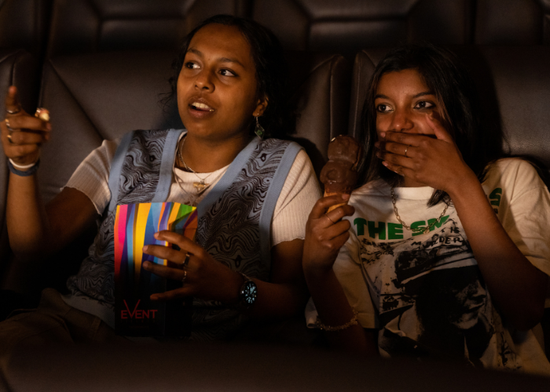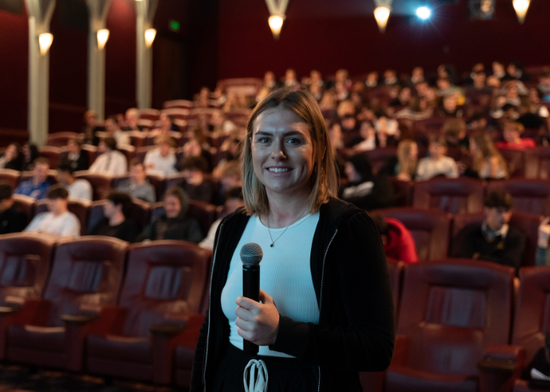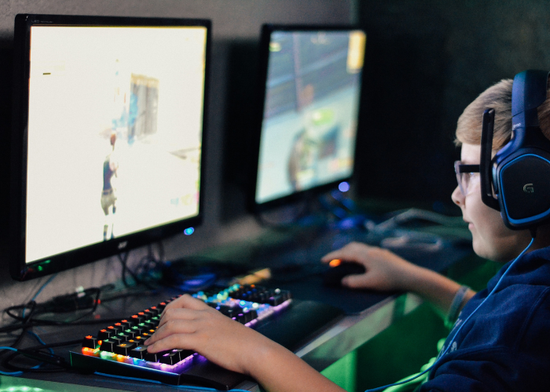Conversation Starters About Harmful Content Online
Talking with our kids about what they might come across online is one of the best ways to help keep them safe. The internet evolves quickly, so checking in regularly helps young people build confidence in managing what they encounter. Starting these conversations early normalises the topic, ensuring kids know they can come to us if they ever see something upsetting or harmful.
How we talk about this changes as they grow, but the key message stays the same: for younger children, it’s reassuring to say, “You’re not in trouble, and I’m here to help.
As they get older and become more independent online, saying something like, “If you ever see something that bothers you, we can figure it out together,” can help keep the conversation open while respecting their growing autonomy."
We worked with clinical psychologist Dougal Sutherland from Umbrella Wellbeing to help get you started.
Early Years (Up to 7 years old)
"Sometimes, we might see pictures or videos online that don’t feel good and can make us feel upset or confused. If that happens, what can you do?"
(Close the device and tell a grown-up you trust.)
"Can you think of anything online that might make you feel sad, worried, or a bit funny inside?"
"If something appears on your screen that you don’t like, who can you talk to?"
"Let’s practice! If you saw something that felt scary or confusing, what would you do? Can you show me?"
These questions help build early awareness and give tamariki the confidence to ask for help when needed.
A further resource on this topic: Good Pictures, Bad Pictures Junior (book) by Kristen Jenson (for ages 3 - 6)
Ages 7–11
Tip: At this age, kids might not always tell us right away if something upsets them, so reassuring them that they won’t get in trouble is important.”
A Quick tip on how to frame the convo:
"If you see something online that makes you feel confused, upset, or a bit ick, who can you talk to?"
"Sometimes, pictures or videos can stick in our heads after we’ve seen them. Has that ever happened to you or someone you know? You won’t be in trouble if it has—talking about it can help."
"If that happens again, what do you think would help?"
"Have you ever seen something online that you knew wasn’t meant for kids? What did you do?"
Ages 11–14
"If you could give advice to your younger self before getting a phone or using the internet, what would you tell them?"
"What would you do if you came across something online that felt harmful or just didn’t seem right?"
"If a friend showed you something on their phone that made you uncomfortable, how would you respond?"
"Sometimes, things we see online can stick with us. Has that ever happened to you or someone you know? What do you think could help if that happened?"
Ages 14+
Tip: Teens often want more independence online. Framing the conversation around advice for a younger sibling can help them open up.
"If you could give advice to a younger sibling or your younger self about being online, what would you say?"
"What would you do if you came across something online that was harmful or even illegal?"
"Do you know what kinds of things are illegal to share online?"
"If you ever saw something that really stuck with you and kept popping into your head, what do you think could help?"
"Have you ever seen something online that was hard to forget? I’ve heard that talking about it can help. You can always come to me; I’ll listen, no judgment." It might also be helpful for adults to share if they've had a similar experience. It can show that it's okay to talk about difficult things, and that they’re not alone in feeling this way.
Further Reading
Banned or illegal content: What is objectionable content?
Classification Office resources for Parents and Whānau (hub)
Talking with young people about what they’re watching (resource guide)
Navigating social media (Mental Health Foundation resource)
Was this helpful?
If you'd like to know more about this topic, get in touch. We're happy to help.



